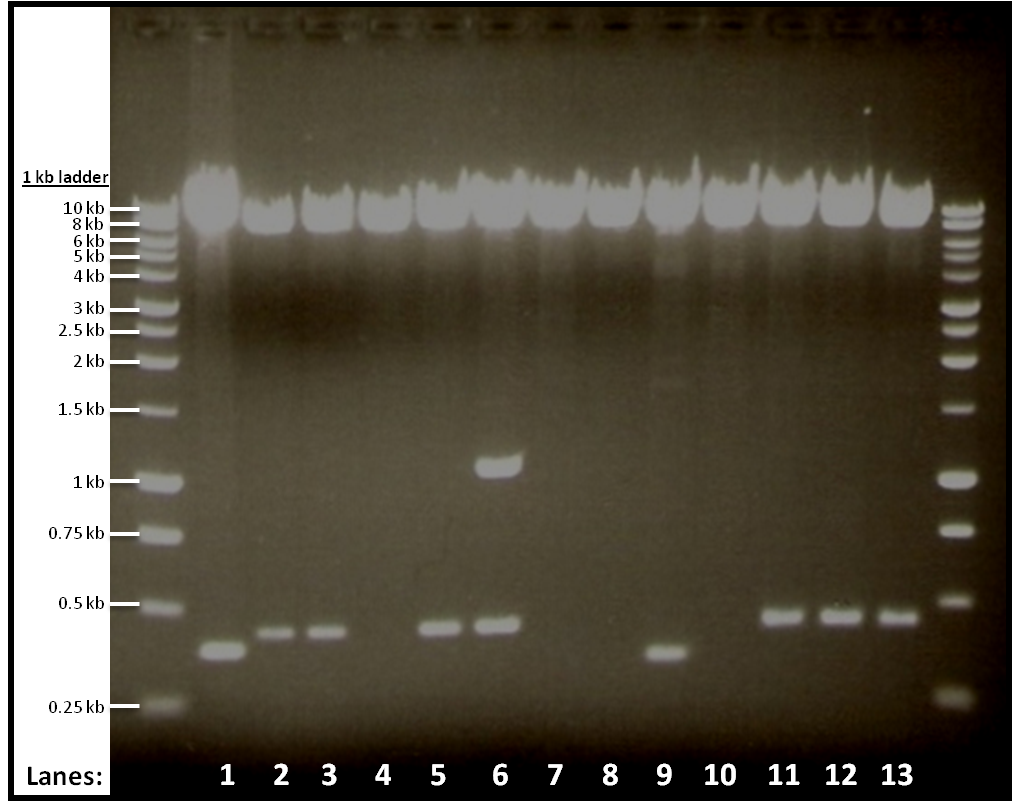Team:Newcastle/25 August 2010
From 2010.igem.org

| |||||||||||||
| |||||||||||||
Contents |
Gel electrophoresis for single digestion of pSB1C3
Aim
The aim of this experiment is to check if the digestion from yesterday worked.
Materials and Protocol
Please refer to gel electrophoresis for protocol.
Results
The result from gel electrophoresis:
Figure 1 shows the double digest of 12 tubes of pGFPrrnB and yneA.
- Lane 1: Vector only
- Lane 2: Tube 1
- Lane 3: Tube 2
- Lane 4: Tube 3
- Lane 5: Tube 4
- Lane 6: Tube 5
- Lane 7: Tube 6
- Lane 8: Tube 7
- Lane 9: Tube 8
- Lane 10: Tube 9
- Lane 11: Tube 10
- Lane 12: Tube 11
- Lane 13: Tube 12
Discussion
The bands we got from the gel shows that digestion in tubes 1, 2, 4, 10, 11 and 12 worked.
Conclusion
We use the digested products from the six tubes that worked for ligation.
First transformation of 'Bacillius subtilis 168' with Prrnb-GFP containing YneA
Aim
To transform yneA into competent B. subtilis.
Materials and Protocol
Please refer to transformation of B. subtilis.
Results and Conclusion
Please refer to results in tomorrow's lab book.
Restriction digestion and gel extraction linearized pSB1C3
Aims
The aim of this experiment is to digested the plasmid pSB1C3 with the restriction enzyme HindIII to linearize it and and to perform gel extraction to purify it.
Materials and protocol
Please refer to the:
- gel electrophoresis,
- gel extraction and
- NanoDrop spectrophotometer protocols.
Results
- Lane 1: 1 Kb ladder
- Lane 2: Linearized plasmid pSB1C3
- Lane 3: 1 Kb ladder
There is no gel photograph because we want to keep the exposure of DNA to the UV light to an absolute minimum.
Discussion
During gel extraction procedure, we found a bright band of approx During gel extraction procedure, we found a bright band of approximately 3100 bp size in lane 2 under UV light and we cut the gel and extracted the band.
Conclusion
We got linearized plasmid pSB1C3 and we performed gel extraction successfully and the nanodrop protocol showed that we got 12.7 ng/µl concentration of plasmid.
 
|
 "
"
